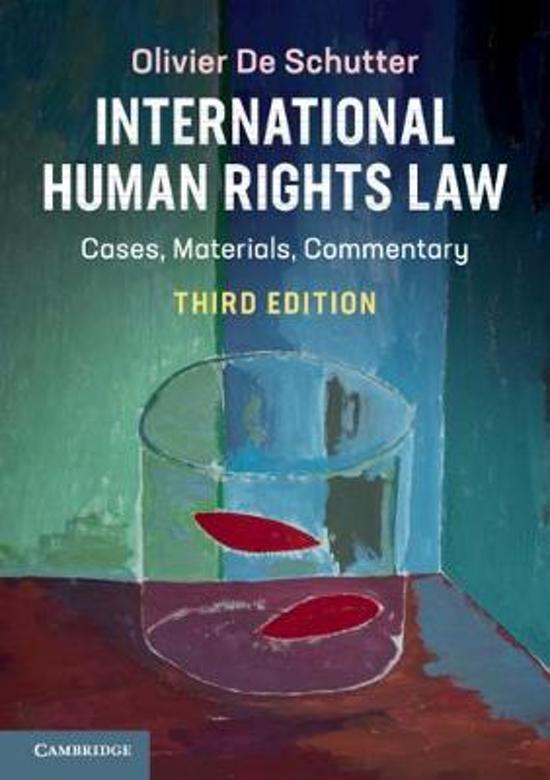This book explores how the rising numbers of refugees entering Europe from 2015 onwards played into fears of cultural, religious, and ethnic differences across the continent. The migrant, or refugee crisis, prompted fierce debate about European norms and values, with some commentators questioning whether mostly Muslim refugees would be able to adhere to these values, and be able to integrate into a predominantly Christian European society.
In this volume, philosophers, legal scholars, anthropologists and sociologists, analyze some of these debates and discuss practical strategies to reconcile the values that underpin the European project with multiculturalism and religious pluralism, whilst at the same time safeguarding the rights of refugees to seek asylum.
Country case studies in the book are drawn from France, Germany, Greece, Hungary, Italy, the Netherlands, Poland, Spain, Sweden, and the United Kingdom; representing states with long histories of immigration, countries with a more recent refugee arrivals, and countries that want to keep refugees at bay and refuse to admit even the smallest number of asylum seekers. Contributors in the book explore the roles which national and local governments, civil society, and community leaders play in these debates and practices, and ask what strategies are being used to educate refugees about European values, and to facilitate their integration.
At a time when debates on refugees and European norms continue to rage, this book provides an important interdisciplinary analysis which will be of interest to European policy makers, and researchers across the fields of migration, law, philosophy, anthropology, sociology, and political science.
2. Echoes of Memories of Forced Displacement: The Case of the Greek Island of Lesvos Marilena Anastasopoulou
3. Against the Expansion of Racism: The Experience of the Camp des Milles Bernard Mossé
4. The Moral Panic Button: Construction and Consequences Márton Gerő & Endre Sik
5. Abolishing Asylum and Violating the Human Rights of Refugees: Why is it Tolerated? The Case of Hungary in the EUFelix Bender
6. Between Closing Borders to Refugees and Welcoming Ukrainian Workers: Polish Migration Law at the Crossroads Witold Klaus
7. Debating Deportation Detention in Germany - The Many Faces of the Rule of Law Johanna C. Günther
8. Integration by Contract and the 'Values of the Republic': Investigating the French State as a Value Promoter for Migrants (2003-2016)Myriam Hachimi Alaoui & Janie Pélabay
9. Box-ticking Exercise or Real Inclusion? Challenges of Including Refugees' Perspectives in EU Policy Robert Larruina & Halleh Ghorashi
10. Being a 'Refuge-City': Welcoming Rhetorics in Paris and Barcelona Louise Hombert
11. Holding Course: Civil Society Organizations' Value Expressions in the Swedish Legislative Consultation System before and after 2015 Roberto Scaramuzzino & Brigitte Suter
12. Community-based Sponsorship of Resettling Refugees in the UK: British Values in Action?Joanne van Selm
13. Crisis and Willkommenskultur: Civil Society Volunteering for Refugees in Germany Therese Herrmann
14. Cosmopolitanism at the Crossroads: Swedish Immigration Policy after the 2015 Refugee Crisis Christian Fernández
15. (Un)Deserving Refugees: Contested Access to the 'Community of Value' in ItalyChiara Marchetti
16. Christian Charity as the Last Line of Defense for Migrants in Ventimiglia Juan Pablo Aris Escarcena
17. Proclaiming and Practicing Pro-immigration Values in Poland: A Case Study of Poznań Izabella Main
18. Concluding ThoughtsElżbieta M. Goździak& Brigitte Suter
Izabella Main is an Associate Professor of Ethnology and Anthropology of Culture, Adam Mickiewicz University in Poznań, Poland.
Brigitte Suter is a Senior researcher at Malmö Institute for Studies of Migration, Diversity and Welfare (MIM) at Malmö University, Sweden.
In this volume, philosophers, legal scholars, anthropologists and sociologists, analyze some of these debates and discuss practical strategies to reconcile the values that underpin the European project with multiculturalism and religious pluralism, whilst at the same time safeguarding the rights of refugees to seek asylum.
Country case studies in the book are drawn from France, Germany, Greece, Hungary, Italy, the Netherlands, Poland, Spain, Sweden, and the United Kingdom; representing states with long histories of immigration, countries with a more recent refugee arrivals, and countries that want to keep refugees at bay and refuse to admit even the smallest number of asylum seekers. Contributors in the book explore the roles which national and local governments, civil society, and community leaders play in these debates and practices, and ask what strategies are being used to educate refugees about European values, and to facilitate their integration.
At a time when debates on refugees and European norms continue to rage, this book provides an important interdisciplinary analysis which will be of interest to European policy makers, and researchers across the fields of migration, law, philosophy, anthropology, sociology, and political science.
Table of Contents
1. European Norms and Values and the Refugee Crisis: Issues and Challenges Elżbieta M. Goździak & Izabella Main2. Echoes of Memories of Forced Displacement: The Case of the Greek Island of Lesvos Marilena Anastasopoulou
3. Against the Expansion of Racism: The Experience of the Camp des Milles Bernard Mossé
4. The Moral Panic Button: Construction and Consequences Márton Gerő & Endre Sik
5. Abolishing Asylum and Violating the Human Rights of Refugees: Why is it Tolerated? The Case of Hungary in the EUFelix Bender
6. Between Closing Borders to Refugees and Welcoming Ukrainian Workers: Polish Migration Law at the Crossroads Witold Klaus
7. Debating Deportation Detention in Germany - The Many Faces of the Rule of Law Johanna C. Günther
8. Integration by Contract and the 'Values of the Republic': Investigating the French State as a Value Promoter for Migrants (2003-2016)Myriam Hachimi Alaoui & Janie Pélabay
9. Box-ticking Exercise or Real Inclusion? Challenges of Including Refugees' Perspectives in EU Policy Robert Larruina & Halleh Ghorashi
10. Being a 'Refuge-City': Welcoming Rhetorics in Paris and Barcelona Louise Hombert
11. Holding Course: Civil Society Organizations' Value Expressions in the Swedish Legislative Consultation System before and after 2015 Roberto Scaramuzzino & Brigitte Suter
12. Community-based Sponsorship of Resettling Refugees in the UK: British Values in Action?Joanne van Selm
13. Crisis and Willkommenskultur: Civil Society Volunteering for Refugees in Germany Therese Herrmann
14. Cosmopolitanism at the Crossroads: Swedish Immigration Policy after the 2015 Refugee Crisis Christian Fernández
15. (Un)Deserving Refugees: Contested Access to the 'Community of Value' in ItalyChiara Marchetti
16. Christian Charity as the Last Line of Defense for Migrants in Ventimiglia Juan Pablo Aris Escarcena
17. Proclaiming and Practicing Pro-immigration Values in Poland: A Case Study of Poznań Izabella Main
18. Concluding ThoughtsElżbieta M. Goździak& Brigitte Suter
About the Editors
Elżbieta M. Goździak is a Visiting Professor at the Center for Migration Studies, Adam Mickiewicz University, Poland, a Research Professor at Oslo Met University, Oslo, Norway, and a Fellow for Refugee Engaged Scholarship at the Center for Social Justice, Georgetown University, USA.Izabella Main is an Associate Professor of Ethnology and Anthropology of Culture, Adam Mickiewicz University in Poznań, Poland.
Brigitte Suter is a Senior researcher at Malmö Institute for Studies of Migration, Diversity and Welfare (MIM) at Malmö University, Sweden.
About the Series
Routledge Studies in Development, Mobilities and Migration
This series is dedicated to the growing and important area of mobilities and migration, particularly through the lens of international development. It promotes innovative and interdisciplinary research targeted at a global readership. The series welcomes submissions from established and junior authors on cutting-edge and high-level research on key topics that feature in global news and public debate.
These include the so called European migration crisis; famine in the Horn of Africa; riots; environmental migration; development-induced displacement and resettlement; livelihood transformations; people-trafficking; health and infectious diseases; employment; South-South migration; population growth; children’s wellbeing; marriage and family; food security; the global financial crisis; drugs wars; and other contemporary crisis.
To submit proposals, please contact the Editor, Helena Hurd (Helena.Hurd@tandf.co.uk).
These include the so called European migration crisis; famine in the Horn of Africa; riots; environmental migration; development-induced displacement and resettlement; livelihood transformations; people-trafficking; health and infectious diseases; employment; South-South migration; population growth; children’s wellbeing; marriage and family; food security; the global financial crisis; drugs wars; and other contemporary crisis.
To submit proposals, please contact the Editor, Helena Hurd (Helena.Hurd@tandf.co.uk).
Interessant artikel? Deel het eens met uw netwerk en help mee met het verspreiden van de bekendheid van dit blog. Er staan wellicht nog meer artikelen op dit weblog die u zullen boeien. Kijk gerust eens rond. Zelf graag wat willen plaatsen? Mail dan webmaster@vreemdelingenrecht.com In verband met geldwolven die denken geld te kunnen claimen op krantenartikelen die op een blog als deze worden geplaatst maar na meestal een dag voor de krantenlezers aan leeswaardigheid hebben ingeboet terwijl wij vreemdelingenrecht specialisten ze soms wel nog jaren gebruiken om er een kopie van te maken voor een zaak ga ik over tot het plaatsen van alleen het eerste stukje. Ja ik weet het: de kans dat u doorklikt is geringer dan wanneer het hele artikel hier staat en een kopie van het orgineel maken handig kan zijn voor uw zaak. Wilt u zelf wat overnemen van dit weblog. Dat mag. Zet er alleen even een link bij naar het desbetreffende artikel zodat mensen niet alleen dat wat u knipt en plakt kunnen lezen maar dat ook kunnen doen in de context. Subscribe to Vreemdelingenrecht.com blog by Email










